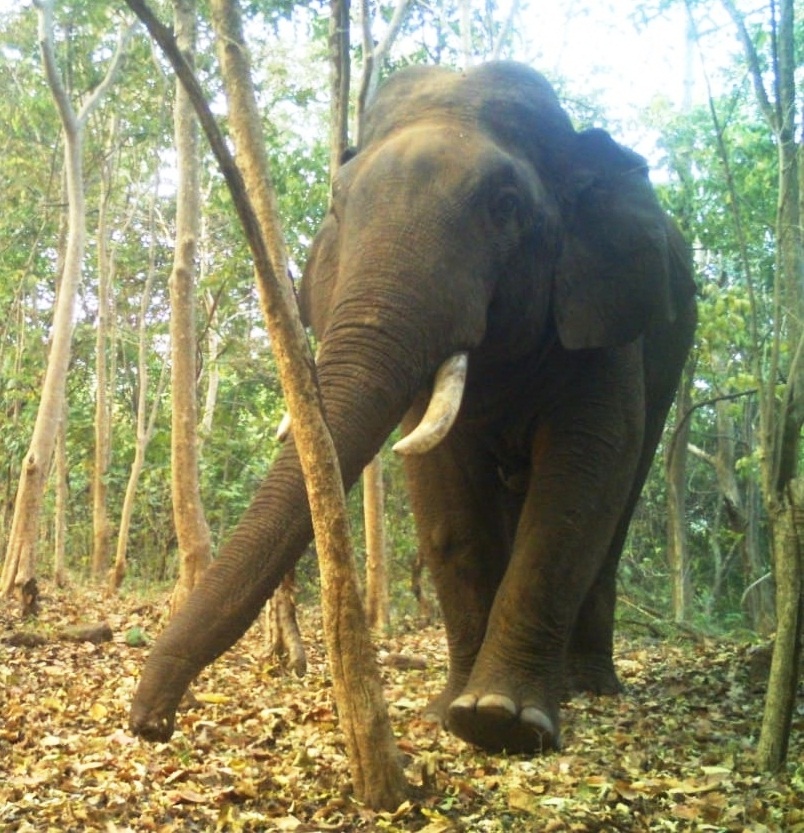Dhenkanal: After Similipal, Dhenkanal forest division has the most number of pachyderms in the state. The protected forests here coupled with the cool climate provide a free and suitable habitation for the giant animals. However, on the other hand, the persisting menace of man-elephant conflict has not spared this district either.
Meanwhile, the Forest Department has revealed some shocking facts relating to the male elephant population. It is feared that if the number of tuskers continues to go down, then elephants will soon vanish from the district’s forests owing to inadequate reproduction. The elephant has been given the tag of heritage animal of India. But the measures being taken to safeguard them are meager.
Consequently, dark clouds of peril are hovering over the biggest mammals on land. Especially, in Odisha, the unabated poaching of tuskers for the greed of their tusks and the Forest officials’ involvement in such criminal activities have become a cause of concern. In this backdrop, the fact that in the last three years, as many as nine bull elephants have perished in Dhenkanal has alarmed the Forest Department. According to wildlife experts, both male and female jumbos mature physically for mating between eight to 12 years of age. The breeding season of the animals spans from December to March. During this time, one tusker establishes relations with around five females in the herd. If everything goes well, all five females conceive and after 22 months they bear calves. It is important that a fine balance remains between the number of male and female jumbos. However, due to a host of reasons, the death of young tuskers is on the rise in the Dhenkanal district.
As per the available data, three tuskers died in 2021-22, five in 2022-23, and one till July this year (2023-24). In the areas under the district where man-elephant conflict is prevalent, hunters are setting electric traps in forests and farmlands to hunt wild boars. Many times, elephants get trapped and electrocuted. Especially, the tuskers that are separated from their herd and wander about alone have a higher risk of death. Most of the nine jumbo fatalities are due to electrocutions. As per the information provided by the Forest department, there are 54 tuskers living in different jungles of the district. In this regard, Dhenkanal DFO Sumit Kumar Kar said, “It is the responsibility of the Forest department to provide security to both people and jumbos. The declining number of tuskers is a great concern as it puts the elephant population at stake.
People will be made aware of this fact. Patrolling has been stepped up in many areas for better protection of life and property from the jumbo menace. We are also informing the people in advance through a mobile app.”
Kandhara protected forest under Hindol forest range of this district borders Cuttack district’s Baramba, Narasinghpur areas making it easier for the poachers to infiltrate into the forest. Five years ago, a tusker had succumbed in this forest after being fired upon by a poacher. The accused had even resorted to firing at the Forest officials. As the Forest personnel backtracked fearing for their lives, the poachers had cut away both tusks of the jumbo. The incident was a wake-up call for the Forest department. While no arrests have been made in this regard even after five years, questions have been raised on the modernisation of the Forest department.
